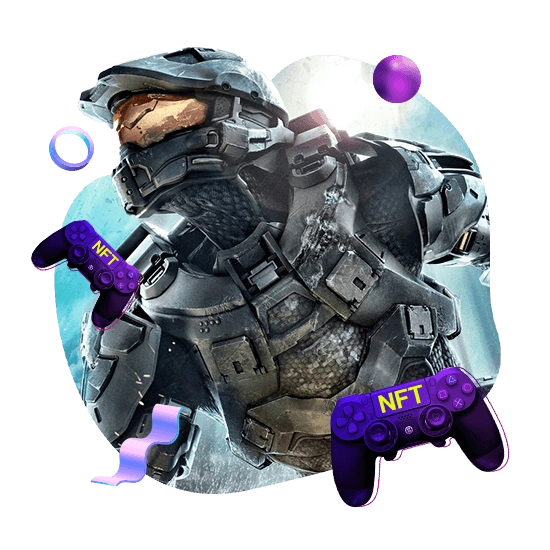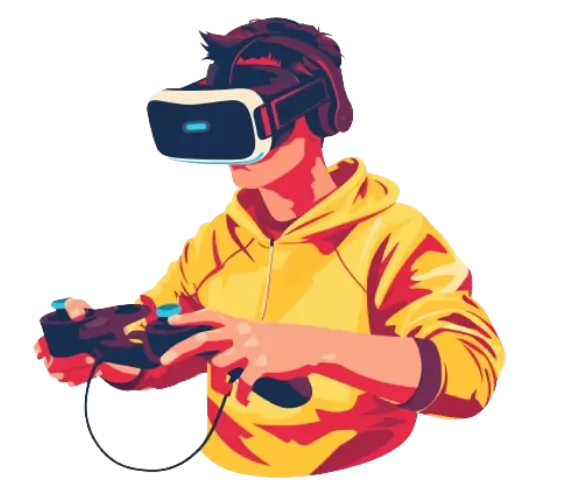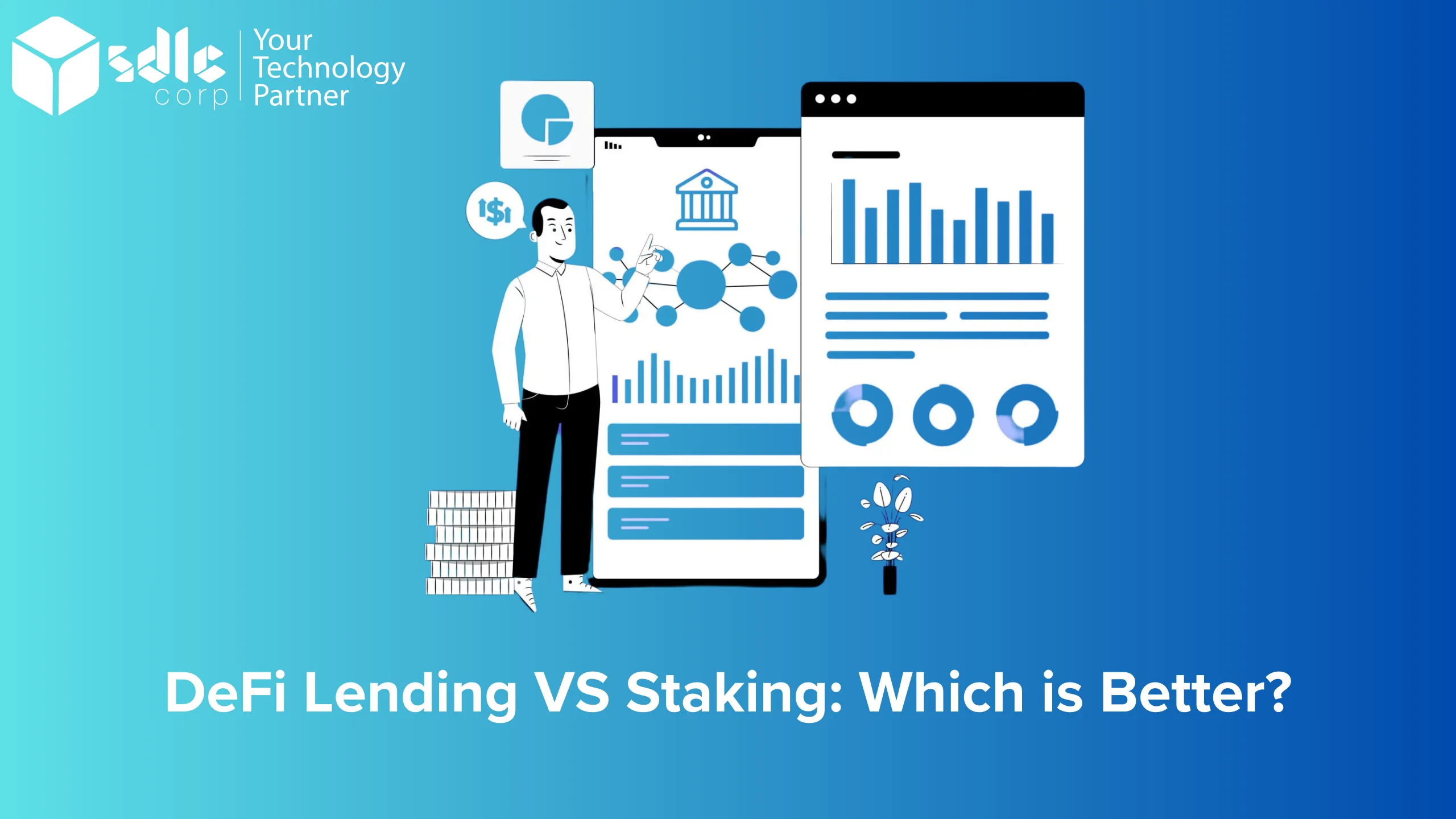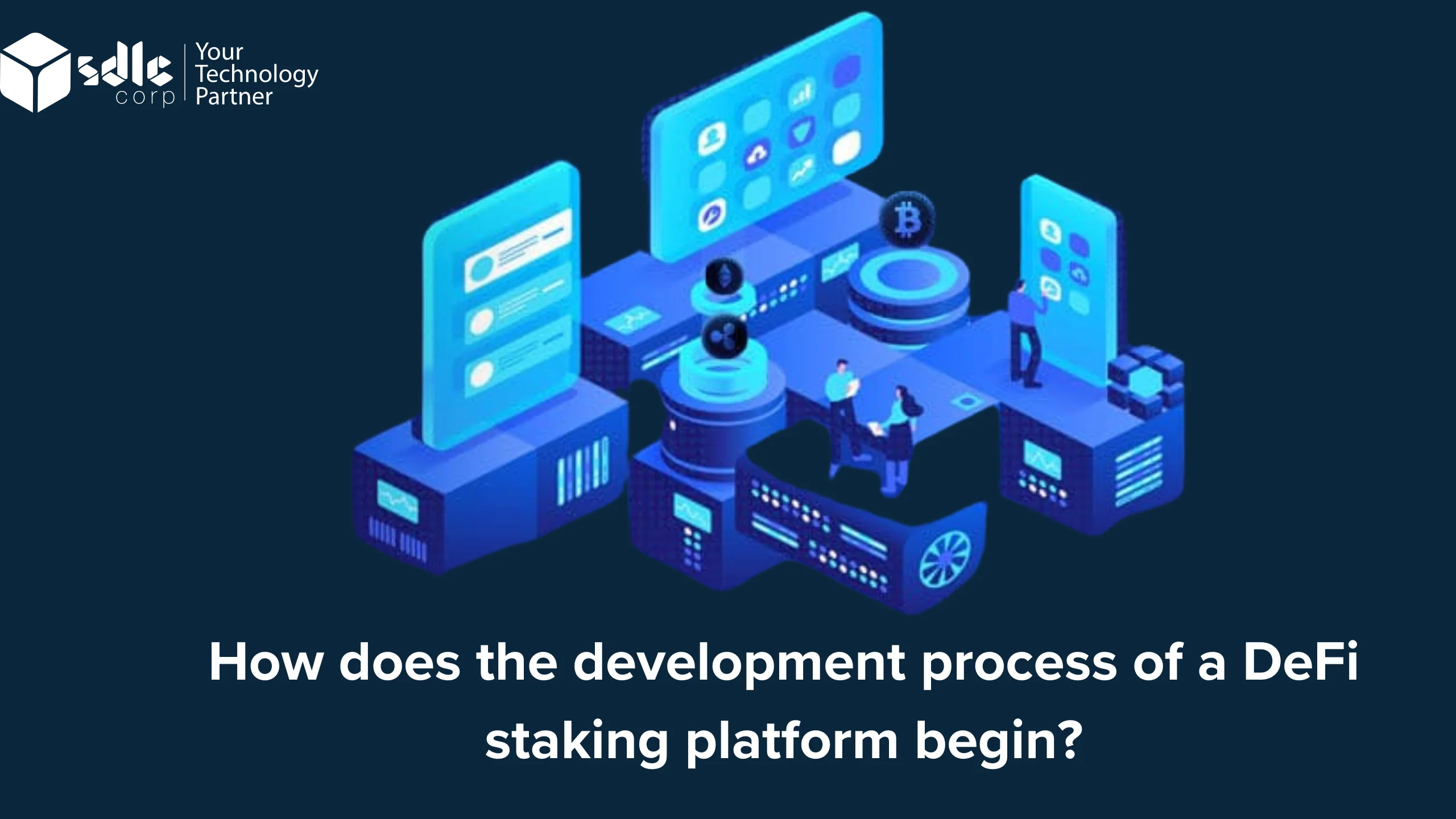Introduction
Once a simple refuge of pixelated adventures and basic mechanics, the gaming industry has undergone remarkable transformations over the decades. Gaming has constantly evolved from the nostalgic, joystick-driven arcades of the 1980s to today’s visually stunning, hyper-immersive virtual realms. Yet, among these many changes, none may be as groundbreaking as the rise of GameFi a revolutionary fusion of gaming and decentralized finance (DeFi). GameFi, short for “Game Finance,” isn’t just an upgrade; it’s a paradigm shift. By intertwining blockchain technology with gaming, GameFi allows players to earn, trade, and invest in digital assets, effectively turning entertainment into an economy. With the increasing demand for Game Development Services, the industry focuses on integrating financial rewards within gameplay.
Transform your vision with blockchain innovation
A blockchain development company specializes in creating and implementing blockchain technology solutions.

The Evolution of Gaming: A Journey from Pixels to Profits
To truly grasp the impact of GameFi, we must first appreciate the journey that has brought the gaming industry to this pivotal moment. Gaming began as a simple pastime, where players sought nothing more than the thrill of beating high scores or completing levels. The focus was purely on the experience hours spent battling foes or solving puzzles for the sheer joy of it. Rewards were virtual, achievements were personal, and the digital worlds in which players immersed themselves were closed ecosystems.
As technology advanced, so did gaming. The internet transformed solitary play into a global phenomenon, enabling online multiplayer games where millions could connect, compete, and collaborate. Then came the era of mobile gaming, which democratized access to games, bringing casual and hardcore gamers alike into the fold. Microtransactions soon followed, introducing the concept of spending real money on in-game items to enhance the experience. But there was a catch: while enhancing gameplay, these purchases had no value outside their specific game worlds. They were locked away, confined to the ecosystem of a single game, offering no tangible return on investment.
Enter blockchain technology, a game-changer in every sense. With its arrival, the foundation was laid for what we now call GameFi. Blockchain brought the concepts of decentralization, transparency, and, most crucially, actual ownership of digital assets. Blockchain Development Services have become integral in building these secure and transparent ecosystems. Suddenly, the notion of gaming for fun evolved into gaming for profit, where players could enjoy the experience and earn real-world value.
Understanding GameFi: A New Era of Gaming
GameFi, at its core, represents the convergence of gaming and decentralized finance. Built on the backbone of blockchain, GameFi ensures that in-game assets once mere digital decorations now have real-world value. These assets, including characters to weapons and skins to virtual land, are often represented as non-fungible tokens (NFTs). Unlike traditional in-game items, NFTs are unique digital assets players can buy, sell, and trade on decentralized marketplaces. NFT Game Development is gaining momentum as more developers seek to incorporate these unique assets into their games.
But GameFi goes beyond just tokenizing in-game items. It introduces the revolutionary “play-to-earn” model, turning the traditional gaming economy on its head. Players often paid to access games or premium features in the old world. In the new world of GameFi, players are rewarded for their time, effort, and skills, earning cryptocurrency or other digital assets as they play. This shift transforms gaming from a hobby into a potential income stream, where the boundaries between play and work blur in exciting new ways.

The GameFi Revolution: Redefining the Gaming Landscape
Empowering Players with True Ownership
The most profound change that GameFi brings to the table is the concept of actual ownership. In the traditional gaming model, players might spend countless hours and significant sums of money acquiring in-game items. Yet, these items remain the property of the game developers, trapped within the confines of a single game. Players have no control over their assets; they can’t sell them, transfer them to other games, or extract real-world value from them.
GameFi flips this script. Leveraging blockchain technology creates a decentralized ecosystem where players fully control their assets. In games like “Axie Infinity” or “The Sandbox,” players can purchase, breed, and trade characters, land, and other assets, all represented as NFTs. These NFTs can be sold on secondary markets, sometimes for substantial sums, turning what was once a purely virtual hobby into a potentially lucrative endeavour. Web3 Development Services are crucial in this new gaming paradigm, ensuring seamless integration of blockchain features. This shift adds a new dimension to gameplay and deepens players’ engagement by making their in-game investments tangible and valuable.
The Play-to-Earn (P2E) Revolution
The play-to-earn model is more than just a trend; it’s a transformative force within the gaming industry. Unlike the traditional “pay-to-play” or “freemium” models, where players often spend money to enhance their gaming experience, P2E allows players to earn as they play. This model has gained particular traction in developing countries, offering players a new source of income.
Take “Axie Infinity,” for example. In this game, players can earn a cryptocurrency called Smooth Love Potion (SLP) by completing tasks and battling other players. SLP can be traded on cryptocurrency exchanges for real money or used within the game to breed new Axies. For many, playing “Axie Infinity” has become more than just a pastime; it’s a full-time job. The play-to-earn model democratizes access to the gaming economy, allowing anyone with a smartphone and internet connection to participate and potentially profit.
Decentralized Gaming Economies: Power to the Players
Another significant impact of GameFi is the creation of decentralized gaming economies. In traditional games, the in-game economy is controlled entirely by the developers. They determine the supply and demand of items, set prices, and manage the game’s overall balance. This centralized control can sometimes lead to problems, such as inflation or imbalances that detract from the gaming experience.
GameFi disrupts this model by introducing decentralized autonomous organizations (DAOs) to manage in-game economies. In a GameFi ecosystem, the community of players has a say in how the game evolves. They can vote on critical decisions, from introducing new assets to game mechanics and reward distribution changes. This decentralized approach ensures that the game reflects the players’ needs and desires, creating a more balanced, fair, and engaging experience. For developers looking to enter this space, DeFi Development Services provides the necessary tools to build and sustain these complex economies.
Cross-Game Interoperability: A New Level of Integration
One of the most exciting possibilities that GameFi brings is cross-game interoperability. In the traditional gaming world, each game exists in its silo, with no way to transfer assets or currency between games. However, with GameFi, blockchain technology makes it possible for assets from one game to be used in another. This interoperability could revolutionize the gaming experience, breaking the walls between different games and creating a more connected and integrated ecosystem.
Imagine acquiring a mighty sword in one game and then using it in another or trading it across different gaming platforms. This ability to move assets seamlessly between games increases their value and provides players with greater control and flexibility. The result is a more dynamic and interconnected gaming world where the boundaries between individual games start to blur.
Tokenized Governance: Players as Stakeholders
GameFi doesn’t just give players ownership of in-game assets; it also gives them a voice in the game’s future. Through tokenized governance, players can participate in decision-making, influencing everything from game updates to economic policies. Governance tokens, which players can earn or purchase, grant voting rights, ensuring that the game evolves in a way that aligns with the community’s interests.
For instance, in “Decentraland,” a virtual world where players can buy and develop land represented as NFTs, governance is handled through the Decentraland DAO. Token holders have a direct say in decisions related to land development, new features, and economic changes. This level of involvement deepens players’ connection to the game and creates a more vibrant and invested community.
Start Your NFT Game Project Today!
NFT game development involves creating video games that incorporate non-fungible tokens (NFTs) as core elements of gameplay.

Challenges Facing the GameFi Industry
Regulatory Uncertainty
Despite its many advantages, GameFi faces significant challenges, with regulatory uncertainty being one of the most pressing. The legal landscape surrounding cryptocurrencies, NFTs, and blockchain gaming is still evolving, with different jurisdictions adopting varying approaches. This lack of clarity can create obstacles for developers, who must navigate complex legal environments while ensuring compliance.
Some regions may classify in-game tokens as securities, subjecting them to stringent regulations. Others may take a more lenient stance but still impose requirements related to anti-money laundering (AML) and know-your-customer (KYC) practices. This regulatory patchwork can be daunting for GameFi projects, which must remain vigilant to avoid legal pitfalls.
Security Concerns: Protecting the Digital Frontier
As with any technology involving digital assets, security is paramount in the GameFi space. Integrating smart contracts, decentralized exchanges, and NFTs introduces potential vulnerabilities that malicious actors could exploit. Bright contract breaches have led to significant financial losses, highlighting the importance of robust security measures.
To safeguard players’ assets and maintain trust within the community, GameFi developers must prioritize security. This includes regular code audits, secure coding practices, and the implementation of multi-signature wallets to protect against unauthorized access. As the GameFi ecosystem grows, the need for enhanced security measures will only become more critical.
Volatility and Speculation: The Rollercoaster of Crypto
The GameFi ecosystem is intricately linked to the broader cryptocurrency market, known for its volatility. The value of in-game tokens and NFTs can experience dramatic fluctuations driven by market sentiment, speculation, and external factors. This volatility can be both a boon and a bane, offering opportunities for profit while exposing players to significant financial risk.
Market downturns can be particularly challenging for players who rely on GameFi as a source of income. Developers must grapple with maintaining economic stability within their games amidst the turbulence of the crypto market. Some GameFi platforms have introduced mechanisms such as token buybacks, liquidity pools, and algorithmic stablecoins to mitigate these risks, but the market’s inherent volatility remains a constant challenge.
Barriers to Entry: Bridging the Knowledge Gap
While GameFi offers exciting opportunities, it also presents barriers to entry, particularly for those unfamiliar with blockchain technology. Understanding digital wallets, cryptocurrency transactions, and the nuances of NFTs can be daunting for newcomers. Additionally, the initial cost of acquiring NFTs or in-game tokens may be prohibitive, especially for players in regions with lower incomes.
Developers and communities are working to lower these barriers to broaden access to GameFi. Initiatives such as free-to-play models, NFT rental systems, and user-friendly onboarding processes are being explored to make GameFi more accessible. Education and community support are also crucial in helping new players navigate the complexities of the ecosystem and fully participate in its opportunities.
The Road Ahead: The Future of GameFi
Looking ahead, GameFi’s future is filled with possibilities, but its trajectory will depend on how well the industry addresses its challenges. As blockchain technology continues to advance, we can expect GameFi to become more sophisticated, with enhanced security measures, more robust decentralized economies, and greater interoperability between games.
One of the most exciting prospects is the integration of GameFi with the broader concept of the metaverse a collective virtual shared space encompassing multiple digital worlds, economies, and communities. In this interconnected environment, GameFi could play a central role in creating immersive experiences where players can seamlessly move between games, social platforms, and financial services, all within a decentralized framework. Metaverse Game Development will likely be at the heart of this evolution, driving new forms of player interaction and engagement.
Moreover, as traditional gaming companies begin to recognize GameFi’s potential, we may see more collaborations between established studios and blockchain projects. This could lead to the development of hybrid games that combine traditional gameplay mechanics with GameFi’s financial incentives and decentralized ownership, offering players the best of both worlds.
Start Your Game Development Journey Today
Explore the world of game development, from concept creation to coding and design, shaping immersive experiences for players.

Conclusion
GameFi is more than just a buzzword; it represents a fundamental shift in the gaming industry. By merging gaming with decentralized finance, GameFi empowers players with actual ownership of digital assets, introduces new revenue models, and creates decentralized economies where players have a direct stake in the game’s future. While the industry faces challenges such as regulatory uncertainty, security concerns, and market volatility, the potential rewards are immense.
As GameFi continues to evolve, it has the potential to transform the gaming industry and the broader digital economy. By providing new opportunities for income, financial inclusion, and innovation, GameFi is paving the way for a new era of gaming one where players are not just participants but active stakeholders in the digital worlds they inhabit. The future of gaming is decentralized, and GameFi is leading the charge into this brave new world.



